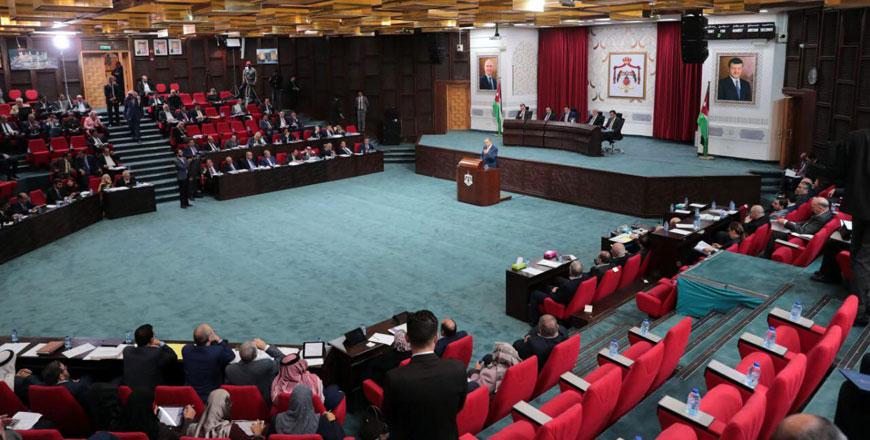You are here
‘New income tax to trigger decline in expected revenues’
By Mohammad Ghazal - Nov 19,2018 - Last updated at Nov 19,2018
AMMAN — The recent income tax bill endorsed by the Lower House is expected to result in a decline in the volume of forecasted revenues, economists said on Monday.
The bill, which was amended several times over the past few months, was designed to generate JD300 million in additional revenues, but after this week's amendments to several articles of the bill, the government will only be capable of generating around JD200 million in additional revenues.
"The Lower House increased exemptions for households and individuals for next year and the years to come... at the same time, it increased taxes on some sectors such as mining and reinsurance," economist Wajdi Makhamreh told The Jordan Times on Monday.
Several economists claimed that the frequent amendments to the bill also created "anxiety and confusion" among investors.
"The bill, despite entailing more exemptions for households and individuals, will increase the pressure on various businesses and economic sectors, which will resort in increasing the prices [passed] on to consumers who will be affected indirectly," Makhamreh said, adding that "the amendments introduced are ‘cosmetic’ and there are no substantial amendments introduced to help drive economic growth which is key to increasing overall revenues".
For Zayyan Zawaneh, an expert in political economy, the increase in exemptions for households and individuals was a "good step", but the overall macroeconomic situation is not likely to improve as a result of the bill, he said.
On Sunday, the Lower House endorsed the bill, under which the income threshold was raised from an annual JD18,000 (to go down to 17,000 in 2020), as in the government's version of the law, to JD20,000 for families; and from JD9,000 to JD10,000 for individuals.
Under the existing law, the figure is JD24,000 for households with JD4,000 in exemptions on VAT medical and educational receipts and invoices, and JD12,000 for individuals. The MPs also raised the VAT exemption in the new law to reach JD2,000 instead of the JD1,000 in the government’s proposed bill for families, and to JD1,000 for individuals, provided that such expenses are covered by bills for health, education, loan interests or murabaha (an Islamic finance and investment instrument).
As per MPs’ amendments, income tax on banks will remain at 35 per cent instead of increasing to the 37 per cent proposed by the government. The House also went back on its decision to grant full income tax exemption to agricultural inputs and outputs tax, endorsing instead the government’s amendments, under which exemptions are granted to individual farmers and agricultural companies whose annual income is less than JD50,000 and JD1 million respectively.
"This bill has been discussed several times and each time, some slight amendments were introduced... This created confusion among investors in particular," Zawaneh told The Jordan Times, adding that "investors want to see stability in legislation, especially when it comes to the income tax law... The bill will increase pressures and burdens on businesses and it is expected to make the situation more difficult for people”.
"We need a bill that will help trigger economic growth... Increasing revenues is best done when there is increasing economic growth not through imposing taxes that slow down growth," he added.
The bill needs the endorsement of the Senate before it is published in the Official Gazette and goes into effect.
Related Articles
AMMAN — The Lower House on Sunday passed the controversial 2018 Income Tax Law under parliamentary-committee amendments raising the income t
AMMAN — The 2018 amendments to the Income Tax Law after a nationwide dialogue with various segments of the society were “cosmetic”, economis
AMMAN — The Lower House on Tuesday began its deliberations over the 2018 amendments to the Income Tax Law, turning down a request by some MP













